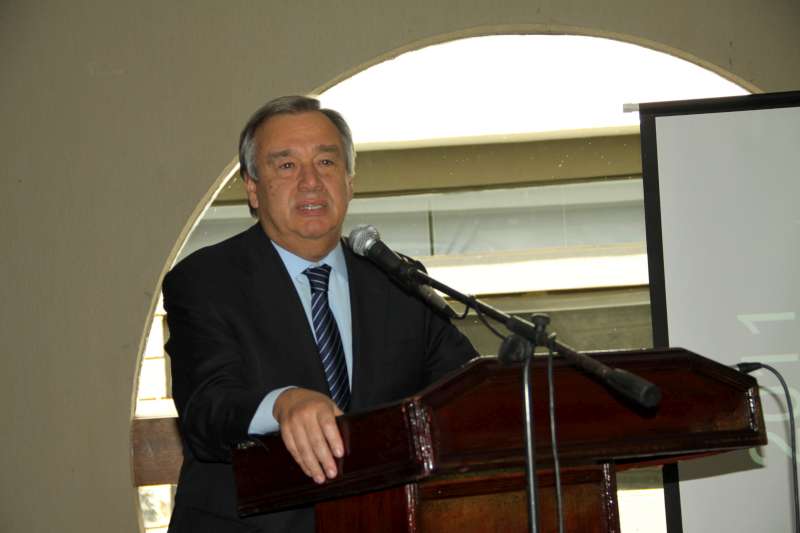UNHCR calls for increased aid for Somalia’s suffering civilian population
Tens of thousands displaced by clashes in Somalia
July 21, 2011Kenya: Somali refugees need protection not abuse
July 21, 2011 |
NAIROBI, Kenya, December 3 (UNHCR) – UN High Commissioner for Refugees António Guterres has made a passionate appeal for the international community to come to the aid of the long-suffering Somali people.
Speaking Wednesday at the launch in Nairobi of the 2011 Humanitarian Appeal for Somalia, Guterres said the African country was facing the burden of multiple crises that have had a devastating affect on its civilians. The United Nations called for US$530 million for humanitarian aid projects in Somalia next year.
“In Somalia, we face a chronic catastrophic humanitarian situation complicated by a protracted acute emergency,” Guterres said. “The suffering endured by the Somali people is appalling and unique in the world,” he added.
The High Commissioner drew attention to the humanitarian and human rights dimensions of the Somali situation and called for concerted international action to protect and assist civilians, who have suffered most from two decades of conflict.
Guterres noted that 27 per cent of the population was in need of humanitarian assistance. He said an estimated 1.5 million Somalis were internally displaced, a fifth of whom were uprooted since the start of this year.
More than 400,000 of the 1.5 million displaced people have fled to the so-called Afgooye corridor, stretching west from the Somali capital of Mogadishu. This is the highest concentration of internally displaced people in the world.
The High Commissioner condemned the gross violations of human rights in Somalia, citing the indiscriminate killing and maiming of civilians, the rape of women and the recruitment of child fighters. “The protection of civilians became the first casualty of the Somali conflict,” he said here in the Kenyan capital.
Guterres said the crisis in Somalia had become a global problem. The flight of hundreds of thousands of Somalis to neighbouring countries and beyond had created what he described as “the first refugee global population in the world.”
While Somali refugees enjoy a high level of protection in some neighbouring countries, UNHCR is concerned about the rejection of refugees and increasing xenophobia in many other countries. “No other refugee population is stigmatized and discriminated against as much as Somali refugees,” Guterres said.
The High Commissioner reiterated that the biggest concern facing his agency was the refoulement, or forced return, of Somali refugees to their strife-torn country. He asked states not to shut their doors to Somali asylum-seekers.
Guterres also paid tribute to aid workers who continue to deliver much needed assistance to the Somali people against extreme odds. In the last two years, 47 humanitarian aid workers have been killed in Somalia and 35 kidnapped.
Despite the risks, he said the international community should stay the course and not abandon Somalis in their hour of greatest need. He called for the Somali crisis to be recognized as a humanitarian priority and addressed urgently.
By Yusuf Hassan in Nairobi, Kenya
Source: UNHCR
